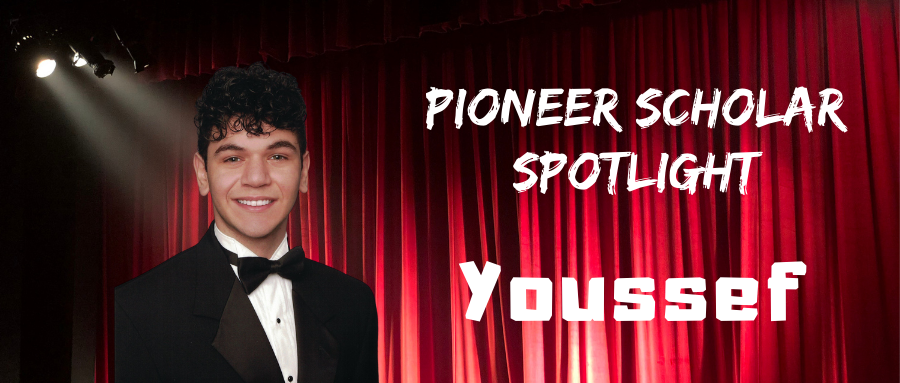Pioneer Scholar Spotlight: Youssef
“I really wanted to get into research because I wanted to be in the loop,

“I really wanted to get into research because I wanted to be in the loop, I wanted to be a part of it, rather than just being someone who’s just watching other people do it.”
When Pioneer scholar Youssef, from New Jersey in the United States, was five years old, he told everyone who asked that he wanted to be a NASA astronaut. His interest in space exploration has not diminished, but it has changed over the years as he has learned about other ways to explore the universe. A recent article suggesting that rockets that could travel at the speed of light might be possible sparked Youssef’s present goal. “I really want to help build things like that,” he says.
In addition to being interested in space, Youssef has also always been comfortable with math and physics. However, he never had the opportunity to study astronomy in a class, with the guidance of a teacher, until he learned about Pioneer. The opportunity to work with a professor and do actual research in a field he wanted to explore motivated Youssef to apply for a Pioneer Research Program, even though he had already been accepted at Northwestern University. Youssef saw his Pioneer program as a way to learn about the process of doing research and writing a research paper, to begin to be comfortable working with a college professor, and to learn what he could, with his limited background, about a research area that has interested him since early childhood.
His lack of a strong math background, a serendipitous experience, and his highly creative mind led Youssef to an unusual research topic. When the time came to choose his topic, Youssef knew that he had to find an approach that didn’t call for the high level math skills that he does not yet have. In one of his cohort sessions, his professor had shown a graph that illustrated the growth of the universe from the Big Bang to the present. It triggered a connection in Youssef’s mind: he realized that it looked a lot like a graph he had seen in a recent AP biology class that illustrated the growth of the human race from its birth to the present. Youssef decided to explore these two areas of growth in a parallel study, and concluded that human beings should learn from the universe. Exponential growth is fine at the beginning, but it needs to slow to a sustainable growth rate—something the universe has done, but humanity has not.
Youssef’s work did not go entirely smoothly. At one individual session with his professor, she pointed out that a sentence in his paper was based on a misunderstanding of something he had read. When he began to fix the sentence, he realized that the entire five or six pages that he had written so far were based on the same mistake, a valuable lesson in checking work thoroughly.
Youssef’s program at Northwestern is ambitious, combining mechanical engineering, aerospace engineering, and astrophysics. Then he hopes to work for a company that focuses on space exploration. “Astrophysicists can’t do much without engineers,” he says. “You can’t get to Mars without engineers, because they need to build the rockets.”
Related News
Online Info Session
Doing research is commonplace. How do you choose the research opportunity that makes a difference?
Join us for a free online info session to learn about Pioneer
At Pioneer Co-Curricular Summit
Check exclusive sharings
From directors of prestigious programs






